He is here. Three years after his last visit to Dhagpo, Thaye Dorje, His Holiness the XVIIth Gyalwa Karmapa, has returned to his European seat for five days of teachings, transmission and practice! This Monday morning, several hundred people arrived to partake of this exceptional opportunity being offered.
Very early, the day began under the best auspices possible with the closing of a three day practice of preparatory rabné (consecration) rituels for the Institute and the large Buddha statue. Karmapa insisted on participating in the very last accumulations of these mantras consecrating the substances and scrolls which were to be placed inside the statue in the coming days. This ritual was only accessible to those familiar with the practice, but the doors and bay windows were filled with visitors impatient to see the Karmapa.
By the end of the morning, the great tent was packed. Places to sit became quickly hard to come by, but with a little good will even the last to arrive were accommodated, and that with a smile. Discussions were in full swing, people meeting up again, when the gyalings suddenly sounded the arrival of the Karmapa. Instantly, respectful silence is observed in the entire tent as everyone rises, with joined hands and an impatient smile spreading across their lips. Some are on their tip-toes to catch a glimpse of the one person for whom they have travelled perhaps hundreds (or even thousands!) of kilometres. And at last, there he is. While progressing up the central aisle, shining as is his custom, he addresses warm smiles to disciples as they line his way. Everyone seems to delight in feeling the softness of his presence, be it their first encounter or a reconnection.
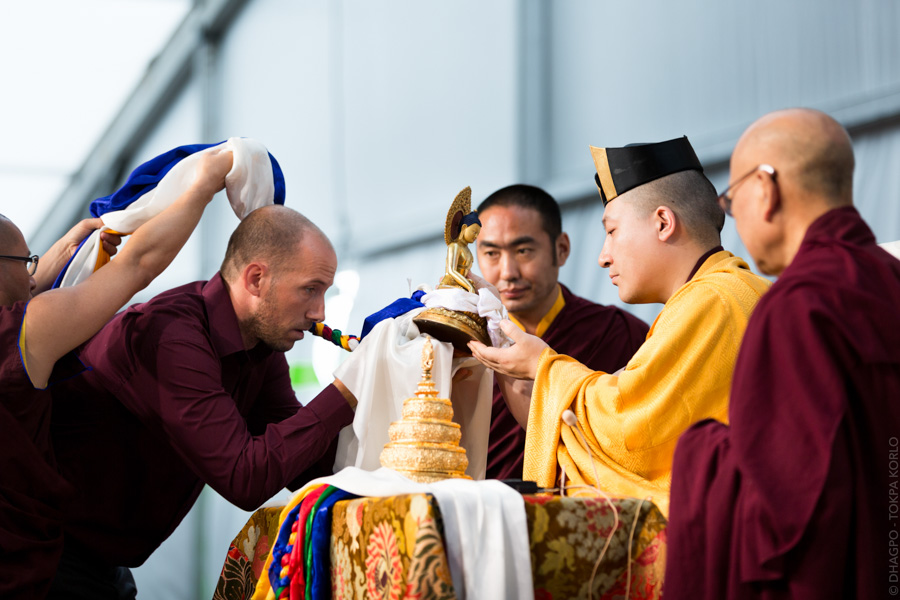
After inclining in front of the alter and lighting incense, Karmapa takes his place on the throne, specially prepared with brocades which had decorated that of the XVIth Karmapa at the moment of the black hat ceremony, decades ago. The traditional opening ceremony may commence. Everyone could take part in the recitations thanks to a booklet printed especially for the occasion. This ceremony, which takes place in all Tibetan Buddhist schools, is a means to make a connection with the master, and in particular to the qualities which he exerts and that one can aspire to develop over time. It is a moment for the disciples to recognize all that the Karmapa and his activity inspire in us; as an extraordinary guest, he is joyfully received with all the splendour that one can imagine. During the course of this recitation, numerous offerings are made not only materially, but also spiritually where they are multiplied to infinity in the mind. These offerings are not simply beneficial for the master but rather for those who make the offerings; as always, it is a means of creating favourable conditions for our development on the path to awakening. This allows our qualities such as generosity to increase, and to make wishes for the wellness of beings. As such, symbolic offerings are made to the Karmapa: the mandala of the universe as well as the body, speech, mind, the qualities and the enlightened activity.
After the ceremony, Karmapa expresses his joy in returning to France and to see so many practitioners in front of him, older practitioners as well as new. He also rejoices in the fact that the Dharma is expanding in the West, pointing out that the karmic conditions needed to be united are coming to maturity – thus the coming of great masters. He invites all the listeners to recall everything which over time took a part in bringing us to the Dharma. Then, he evoked Shamar Rinpoche; contemplating his life and his activity will help us progress along the way. He reminds us that the practice of Guru Yoga (connecting to the masters) is essential in the Kagyu lineage; in addition to other benefits, it allows us to go beyond the ego, to develop the same qualities as the master and opens us to all beings. Karmapa encourages us to study, reflect and meditate so that we too might better understand Guru Yoga. This very practice will close his remarkable visit Friday afternoon.
The afternoon’s session is dedicated to taking refuge correctly, a primordial point of the Dharma. More than one hundred people aspired to take refuge with the Karmapa this afternoon. Before proceeding with the ceremony, Karmapa recalled the importance of refuge and developing the attitude of the enlightened mind (bodhicitta). Even if it is difficult to maintain this attitude, even if it is a real challenge, the Karmapa repeats: these practices are accessible to us and it is essential to cultivate them daily. Refuge and enlightened mind demand little effort and generate great benefits. Never-the-less, he also gives fair warning to those in the audience captivated by his words, about one risk: that all of this might not get put in application, that this practice might slip into something mechanical, without attention. On the other hand, if one truly reflects on the meaning, the reason of refuge and enlightened activity, then a solid foundation is being laid. What is the use of refuge? We take refuge in order to liberate anything that could perhaps inhibit the expression of our mind as it truly is, responds Karmapa. The Buddha Shakyamuni gave us all the instructions, now we need to understand them in order to put them into application. With all these reflections on our condition, that of other people, and that which we need to develop, refuge can become just as natural as breathing. In conclusion, the Karmapa asks each and everyone to take refuge, for sure, but above all to stay attentive to an authentic attitude.
Is there a better way to begin a week with Karmapa than to recall the meaning of our engagement on the path which the Buddha proposed 2500 years ago?

This article has been prepared with the contribution of Emmanuelle Charenton

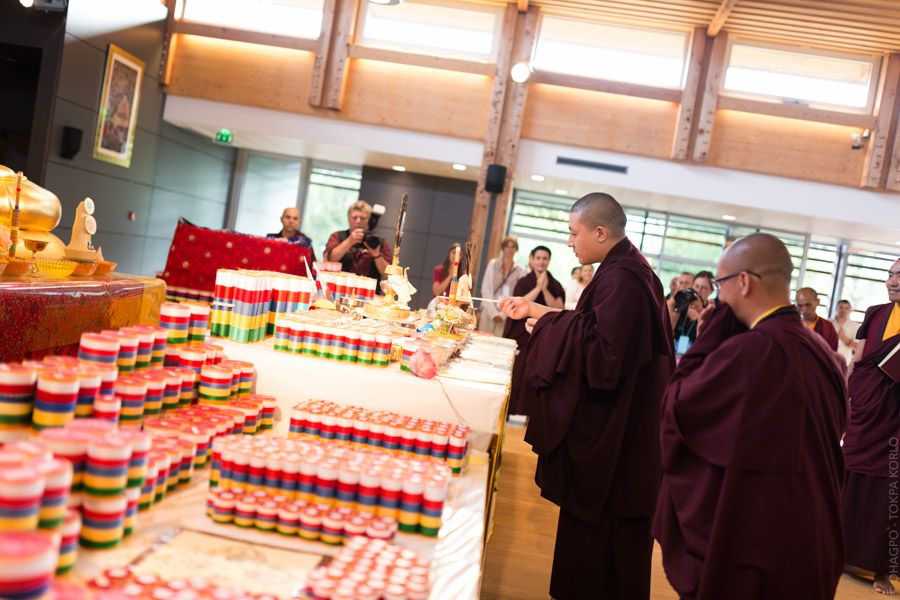
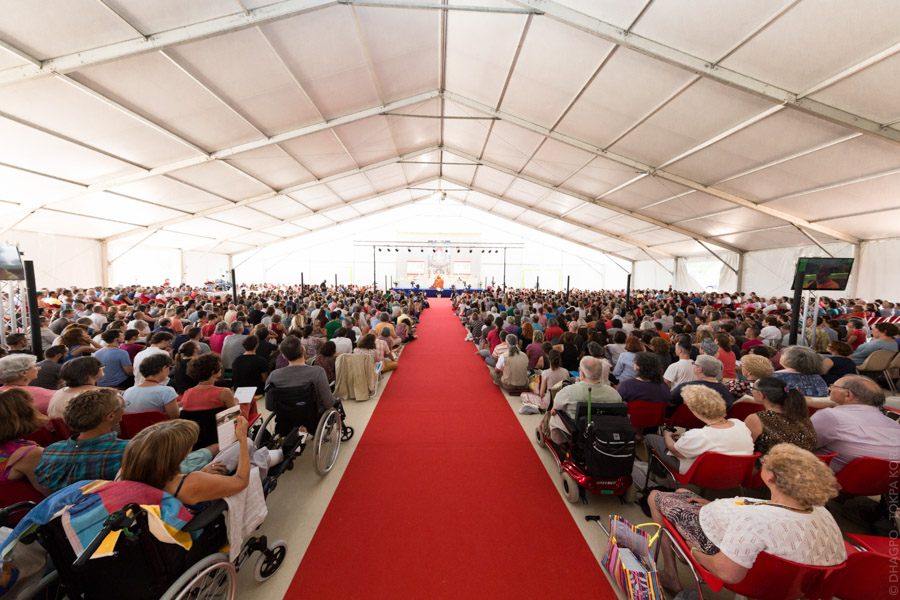
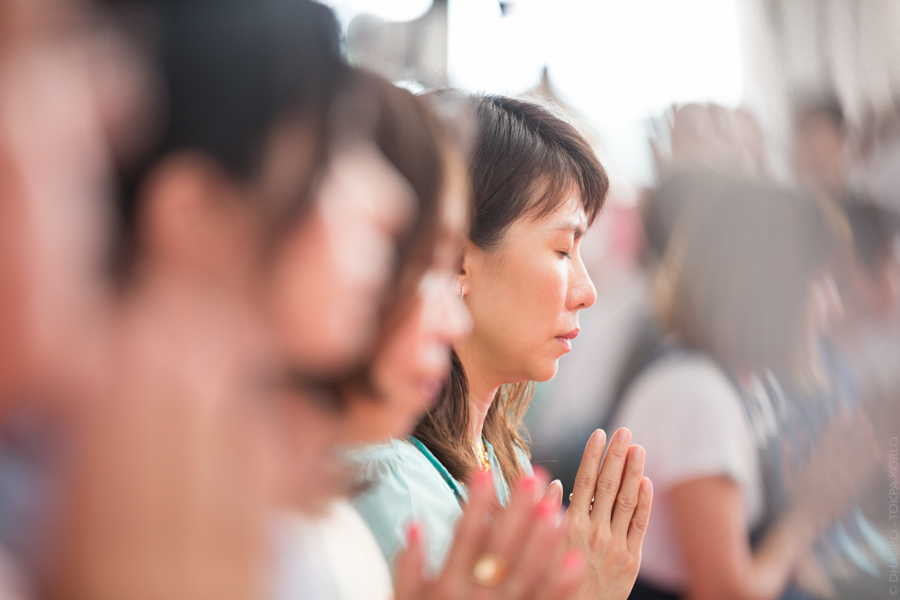
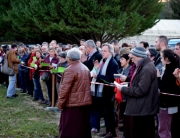
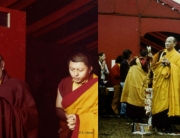
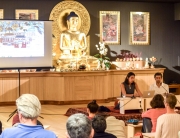
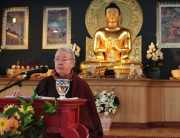
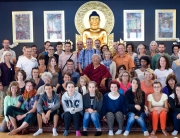



Leave A Comment